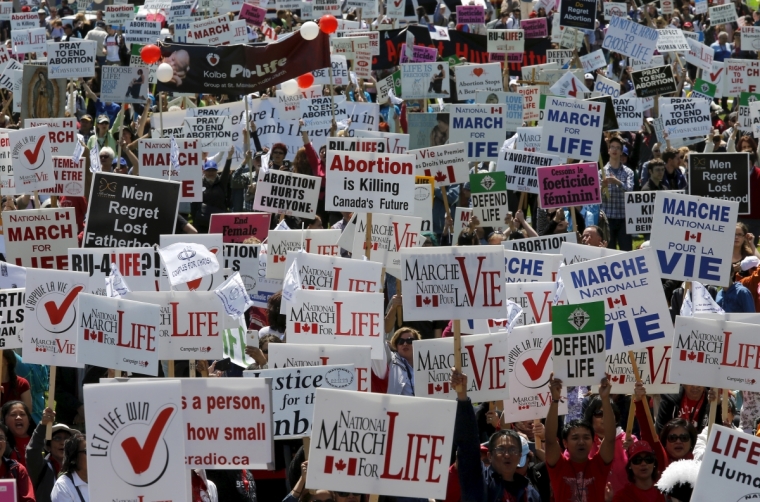How many churchgoing women have had abortions? More than you think

NASHVILLE, Tenn. (Christian Examiner) – A new survey sponsored by nonprofit Care Net shows that about two thirds of polled women not only do not trust the church not to gossip about their pregnancy options, but over half also say they have not told anyone at church they have had an abortion.
More than 40 percent of the 1,000 women who had abortions said they were churchgoers at the same time. "That's a huge opportunity for the church to have an impact on those decisions," said Scott McConnell, vice president of LifeWay Research.
Women say the church had no influence on their decision to have an abortion (76 percent), they think churches are unprepared to counsel women about unplanned pregnancy (41 percent), and most do not discuss their decision to have an abortion with someone at church (93 percent).
"The perspective needs to change in churches," says Vince DiCaro, chief outreach officer for Care Net, according to Facts & Trends. "Pastors need to make it clear to women: You're going to get the compassionate care you need to work through this, and we're going to help you have this baby and support this baby in the long term."
'JUDGMENTAL' AND 'CONDEMNING'
Among women who had an abortion, the church was ranked extremely low in those who had an influence on their decision. Those that were highest were the baby's father (38 percent), a medical professional (16 percent), and the pregnant woman's mother (14 percent), while someone at a local church was ranked most influential by only one percent of responders.
"Six times more women should be reached with at least a caring conversation about the decision they're making," McConnell said in Facts & Trends. "The typical church is dwelling on truth and has no room for grace," he added.
Women perceive the church as judgmental, regardless of whether it actually is. More respondents called the church's reactions to their consideration of abortion—or the church's expected reactions—judgmental (36 percent), condemning (33 percent), cold (16 percent), and indifferent (8 percent).
Far fewer women described the church as loving, caring, helpful, or even informative. The majority selected the answer, "I did not receive any reaction nor had any expectation," strongly indicating the church simply isn't a part of women's decisions.
Robin Mauck, executive direction of the Pregnancy Resource Center of Gwinnett in Lawrenceville, Georgia, said, "Most people, their first thought with their pregnancy is to head off to Planned Parenthood, and we want to change that."
ROOM FOR GRACE
People who are involved in the local church are more likely to view it positively, including women who have had abortions. "The survey shows that frequent churchgoers—people who know the church best—were significantly more likely to believe the church is prepared to provide loving, compassionate support for those considering abortion, especially those attending evangelical churches," said Warren.
A willingness to talk about pregnancy options, training in appropriate counseling, and a pregnancy care ministry should be prioritized by the church, DiCaro said.
Care Net intends to offer curriculum called "Making Life Disciples" to help churches offer counseling to a woman considering abortion, available in spring 2016.
Mauck recommends involvement from the pulpit and also from volunteering to change the perceived climate in the church. "It's a topic pastors don't want to talk about," she said. "Evangelicals need to get more comfortable with talking about it from the pulpit. That's the only way to change how churches respond."
Tony Evans, pastor of Oak Cliff Bible Fellowship in Dallas, recommends churches understand pregnancy resources. "Churches should link their internal pregnancy ministries to pregnancy centers so there can be a referral going both ways," Evans said.